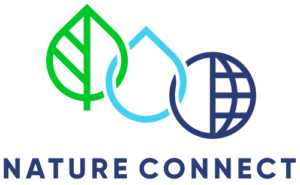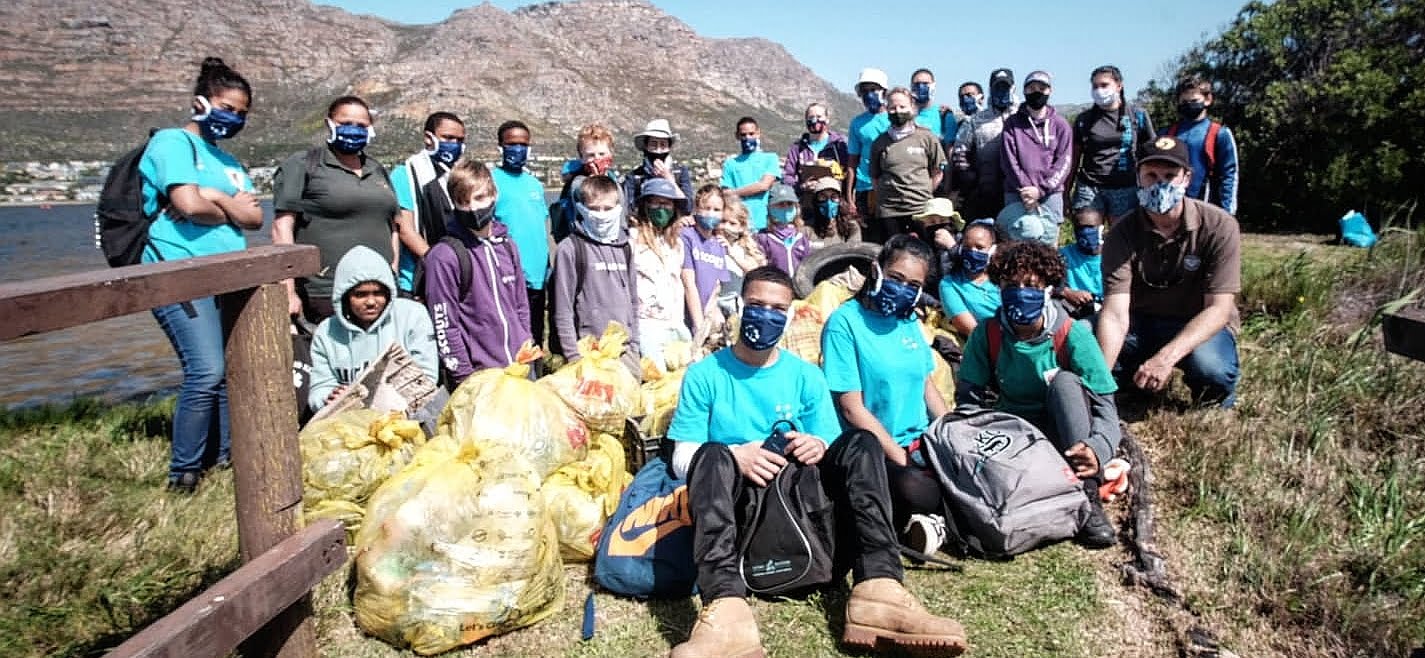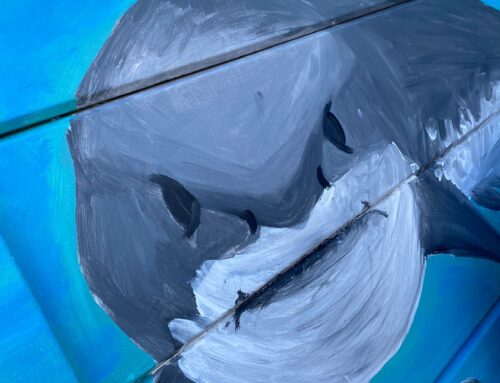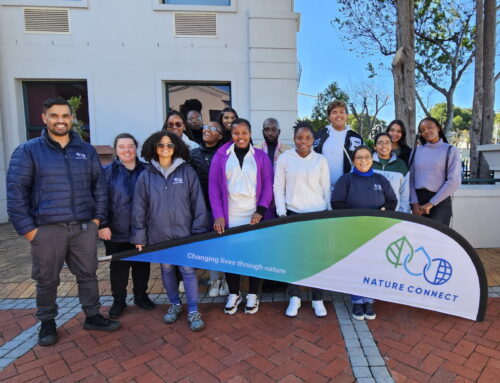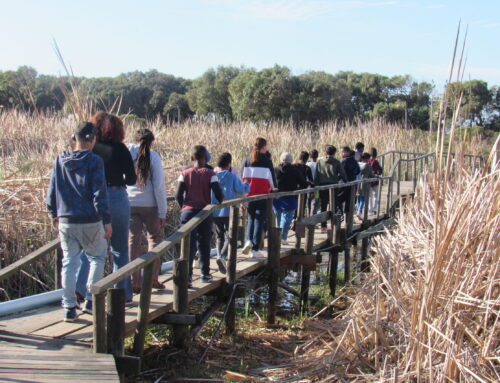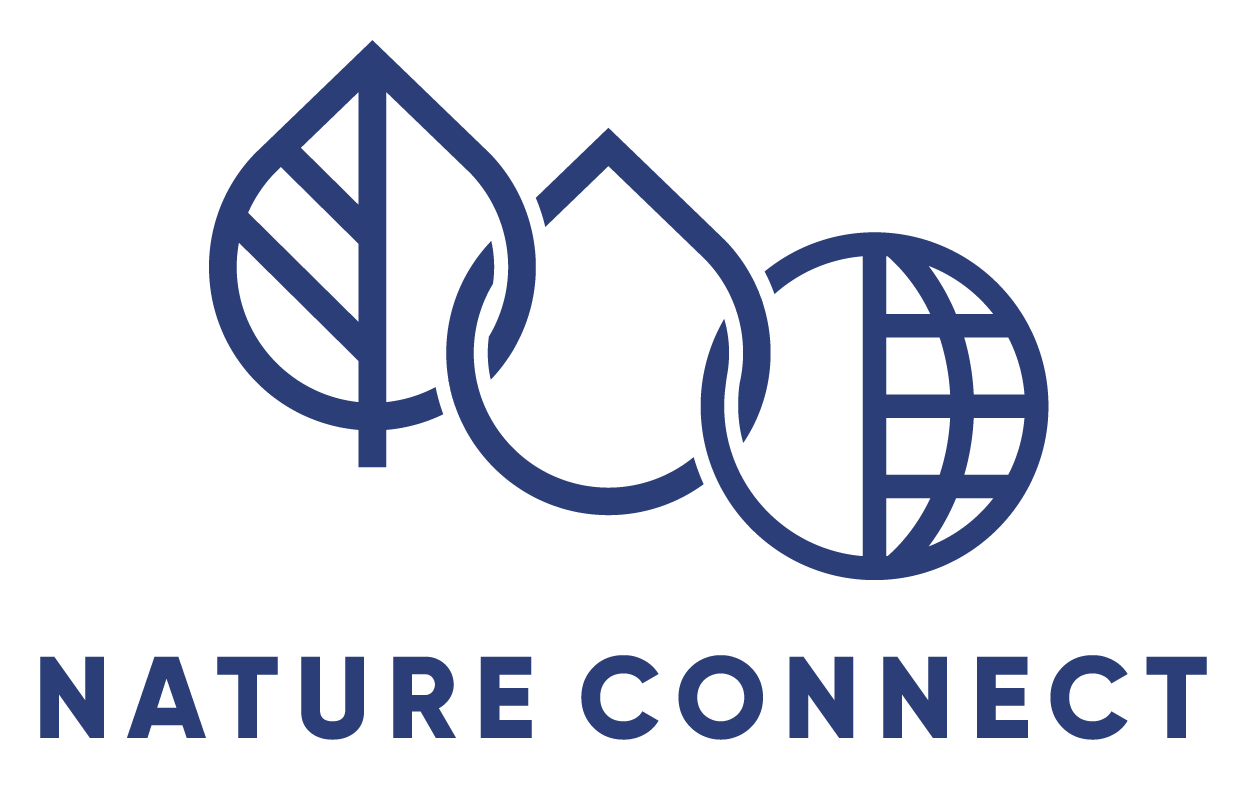 On 18 July some of our learners on the Conservation Leadership Programme led remote clean-ups with small groups of friends and family. This was in answer to CTEET’s call to participate in a virtual clean-up event under the level 3 lockdown restrictions. The public were challenged to clean in their neighbourhoods or area of choice. We were proud of our Conservation Leaders took up the challenge and applied their knowledge without their usual mentors present. Most of the litter collected consisted of plastic bits and chip packets. It was a welcome exercise which learners thoroughly enjoyed, as they had missed the outdoors and doing clean-ups as a bigger group. A wonderful example to their peers, they were also careful to adjust to and follow Covid-19 rules.
On 18 July some of our learners on the Conservation Leadership Programme led remote clean-ups with small groups of friends and family. This was in answer to CTEET’s call to participate in a virtual clean-up event under the level 3 lockdown restrictions. The public were challenged to clean in their neighbourhoods or area of choice. We were proud of our Conservation Leaders took up the challenge and applied their knowledge without their usual mentors present. Most of the litter collected consisted of plastic bits and chip packets. It was a welcome exercise which learners thoroughly enjoyed, as they had missed the outdoors and doing clean-ups as a bigger group. A wonderful example to their peers, they were also careful to adjust to and follow Covid-19 rules.

On 19 August some learners joined the monthly New Moon Clean-Up at Muizenberg Beach, an event organised by the Beach Co-op. This was during level two of lockdown and with strict Covid-19 protocols. Only 12 learners could take part and were delighted to do clean-up and give back to the environment. Not a lot of litter was collected but learners had an opportunity to spend time exploring the rocky shores looking for litter.
 In September our Conservation Leaders planted trees in a community garden in Parkwood as part of Arbour Week and Arbour Month in South Africa. They are always ready to take action and share their environmental knowledge with their peers and communities.
In September our Conservation Leaders planted trees in a community garden in Parkwood as part of Arbour Week and Arbour Month in South Africa. They are always ready to take action and share their environmental knowledge with their peers and communities.
September was also Clean-up and Recycle Month in South Africa. A number of community clean-ups and waste collection campaigns were organised around the country in order to minimise pollution in the environment. On 19 September the Conservation Leaders participated in two events as part of the International Coastal Clean-Up, one at the Zandvlei Estuary Nature Reserve and one at Harmony Park in Strand. The children logged all the trash collected on data sheets provided by Ocean Conservancy and then recorded it online. This data collection process is so important for creating solutions for Trash Free Seas®.  There was ample litter for our volunteers to collect, raising the issue of why we see so much waste and pollution in our public spaces. The most abundant items found were food wrappers, plastic bags and plastic bottles. During clean-ups the learners see the amount of single use plastic in the waste collected and although clean-ups are helpful and necessary, the real change begins with individuals, in the own home, on the school ground. For the learners at the Harmony Park clean-up, the date ended with snorkeling guided by Argonaut Science. They learnt about marine life and citizen science – how they can be involved in making a change.
There was ample litter for our volunteers to collect, raising the issue of why we see so much waste and pollution in our public spaces. The most abundant items found were food wrappers, plastic bags and plastic bottles. During clean-ups the learners see the amount of single use plastic in the waste collected and although clean-ups are helpful and necessary, the real change begins with individuals, in the own home, on the school ground. For the learners at the Harmony Park clean-up, the date ended with snorkeling guided by Argonaut Science. They learnt about marine life and citizen science – how they can be involved in making a change.
